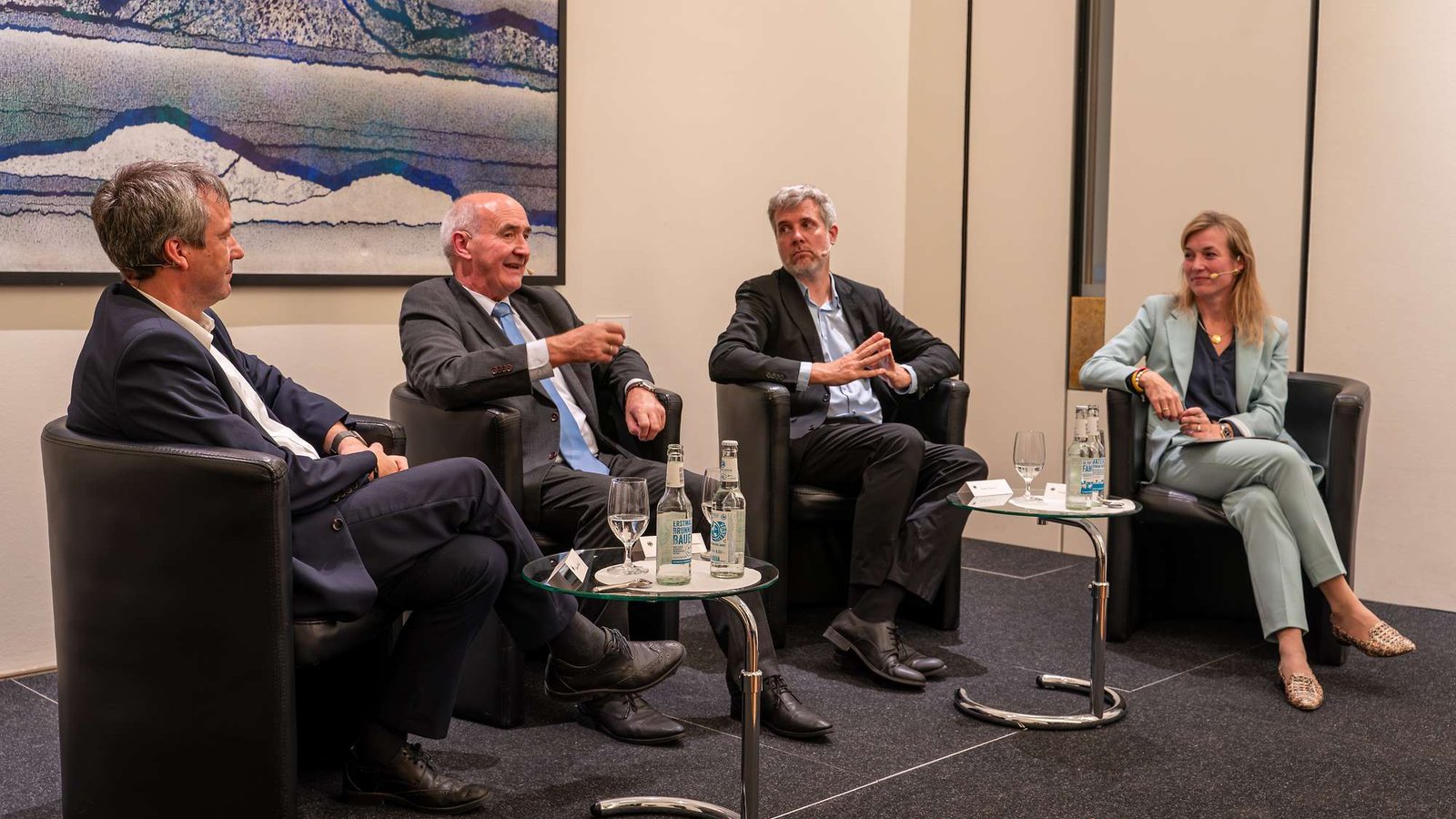On September 28th, a parliamentary evening in Berlin brought together around a hundred stakeholders from politics, science and business. For Siemtje Möller, Parliamentary State Secretary to the Federal Minister of Defense and patron of the evening, this was the start of a necessary in-depth strategic dialogue. Because there can only be comprehensive security in the maritime environment if all state actors work together in a targeted manner with each other and with the economy.
How relevant the sea and the maritime environment in general are for Germany has become clear in recent years. Defense State Secretary Siemtje Möller says that “we are increasingly reminded” how dependent the Federal Republic is on maritime lifelines and how vulnerable they are.
“The accident of a single ship in the Suez Canal, 3,000 kilometers away, is also causing noticeable disruption to imports and exports for us,” the State Secretary began on the evening of the event at the Hamburg state representation in the capital. “The mining and blockade of sea routes and ports in the Black Sea are causing rising bread prices in Germany and hunger in Africa. And the sabotage of two pipelines shows the vulnerability of our energy security.”
Möller demands that Germany must seriously address dangers like these. “Our opponents have recognized how vulnerable we are in the maritime sector,” she warned and asked, “but what can our response to these challenges look like?” An expert panel dealt with this and the tasks derived from it. Moderated by Möller, the discussion was moderated by Johann Saathoff, Parliamentary State Secretary to the Federal Minister of the Interior and Homeland, Dieter Janecek, Federal Government Coordinator for the Maritime Economy and Tourism, and retired Lieutenant General Hans-Werner Wiermann, Head of the NATO Cell for the Protection of Critical Underwater Infrastructure.
The key questions of the group included: How can Germany specifically meet the challenges of maritime security in its departmental and federal structure? What can it learn from other countries in distributing maritime security tasks between state actors and private companies?
It was clear to State Secretary Saathoff that state capacities, especially for maritime security, are limited. “The federal police don’t have the ability to protect everything,” he said. Thousands of kilometers of underwater infrastructure could not be covered. For him, the most important thing is: “The companies that operate critical infrastructures are also responsible for protecting them.”
The coordination of the authorities with companies, but also the obligation of the latter, will become increasingly important as this infrastructure continues to develop. “The North Sea will be the largest power plant in the world,” reported Janecek. The plan is to build wind turbines with an output of around 300 gigawatts in this European maritime region by 2050. For the Maritime Economy Coordinator, this goes hand in hand with the “need to monitor these huge assets”.
However, General (ret.) Wiermann continued this. As soon as the responsibility of operators reaches its limits, states and the military will come into play again, he said. In companies, the responsibility, including the associated resources, is fundamentally only for safety in the sense of operational safety – for example, for protection against accidents. Companies are less able to fend off targeted acts of sabotage or terrorism and, strictly speaking, it is also about public safety and the state’s protection mandate.
Overall, cooperation is crucial – especially for a comprehensive, up-to-date maritime situation picture. The operators of offshore systems in particular “have immense capabilities in monitoring their infrastructure,” says Wiermann.
The experts in the panel discussion represented just a few of the departments over which responsibilities are distributed in Germany. Responsibility for maritime security – in the comprehensive sense – is spread across seven federal ministries: for economics, transport, interior, environmental protection, agriculture, defense and foreign affairs. In addition, there are the five coastal countries with their water protection police. With regard to these various responsibilities, NATO representative Wiermann called for a contact person for maritime security in Germany, as already exists with other alliance partners.
For Möller, however, a lot has already happened in the area of maritime security, especially since the suspected attacks on the Nord Stream 1 and 2 natural gas pipelines in September 2022. For the State Secretary, this included the development of the so-called umbrella law for critical infrastructure in the Federal Ministry of the Interior , NATO -Coordination cell for the protection of critical underwater infrastructure, the EU strategy for maritime security , the motion on maritime sovereignty in the Bundestag and the German Navy’s Course 2035+.
“Nevertheless, experts in the Maritime Security Network have called for this commitment to be better integrated,” warned Möller. For her, the parliamentary evening was a format to bring together the relevant decision-makers and stakeholders across departments and sectors for an integrated understanding of maritime security. For the initiator of the event, a full hall with many people present with a wide range of interests was a clear sign of a willingness to find solutions together.
“Germany is not sea-blind – we know the challenges and the necessary integrated solutions,” concluded Möller. “It is important that we always keep in mind the urgency of action – maritime security must be addressed now in order to be able to assert values and interests in the future.”
For the State Secretary, an in-depth, structured strategic dialogue must now begin within an expert group of the departments – entirely in line with the integrated approach of the National Security Strategy .

